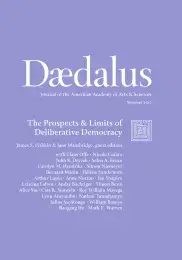Deliberation & the Challenge of Inequality
Deliberative critics contend that because societal inequalities cannot be bracketed in deliberative settings, the deliberative process inevitably perpetuates these inequalities. As a result, they argue, deliberation does not serve its theorized purposes, but rather produces distorted dialogue determined by inequalities, not merits. Advocates of deliberation must confront these criticisms: do less-privileged, less-educated, or perhaps illiterate participants stand a chance in discussions with the more privileged, better educated, and well spoken? Could their arguments ever be perceived or weighed equally? This essay presents empirical evidence to demonstrate that, in deliberations that are structured to provide a more level playing field, inequalities in skill and status do not translate into inequalities of influence.
